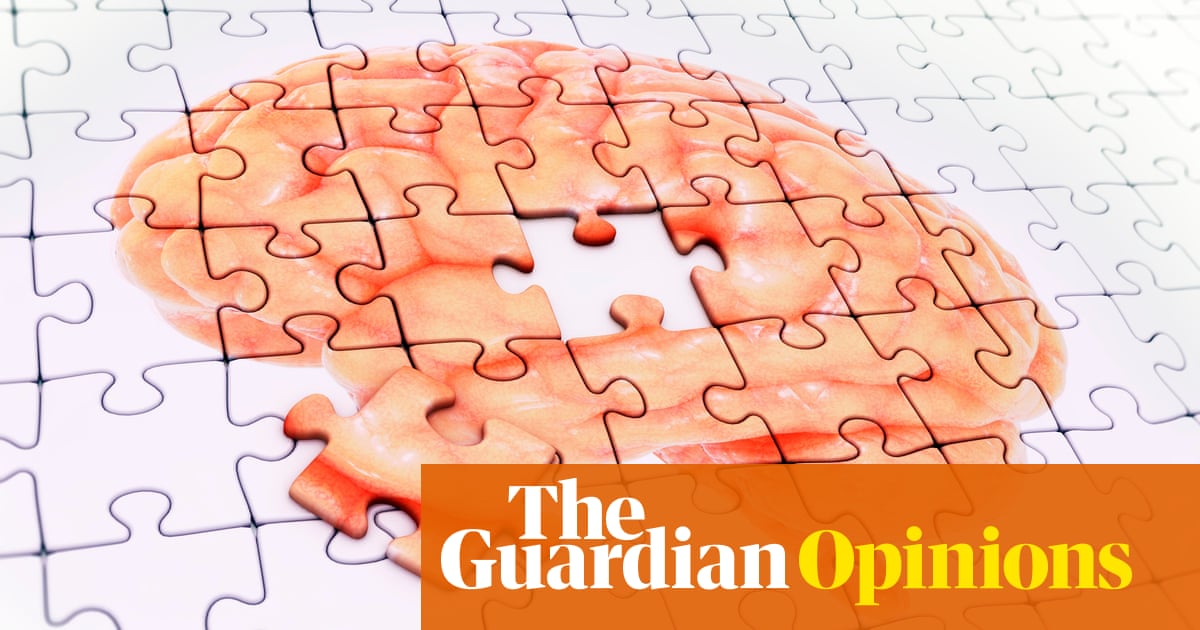
The news that the journalist, presenter and broadcaster Fiona Phillips has Alzheimer’s disease has made us all stop and think. Many will feel desperately sad for her, and frightened for themselves. In the UK, one in 14 people over the age of 65 have dementia, and one in six people over 80, so it’s likely that most of us will be affected by it in our lifetimes. And yet, living with dementia or caring for someone with the illness is not something many of us plan for. Phillips has said that both her parents, her grandparents and her uncle had the disease: “It’s something I might have thought I’d get at 80. But I was still only 61 years old. I felt more angry than anything else.”
I’m very lucky that my work with Innovations in Dementia brings me into contact with many people who live with dementia, and I have learned much from listening to, and working alongside, them. So what would I want to say to Phillips?
First, I’m very encouraged by her words: “I’m getting on with it … still here, getting out and about, meeting friends for coffee.” Our work shows us that, while a diagnosis of dementia is life-changing, it does not have to be life-ending. There is plenty of life left to be lived.
If people are given the right support – and continue to be included in society, their families and communities – there is still a huge amount that they can contribute. Within Deep – the UK Network of Dementia Voices – people from all over the country come together, bringing their current lived experience of dementia, and their life skills and work experience. Off the top of my head I can think of artists, nurses, finance officers, company directors, landscape gardeners, writers, managers, teachers and journalists. All now living with dementia, they gain confidence and support from each other, and are using their skills to influence local and national practice and policy. Some are working with health trusts and universities, co-designing and running post-diagnostic courses. Some are advising transport bodies or banks on how to make their services more accessible, for example by using clearer signage and larger fonts. Some have made films to educate and inspire. Some record dementia diaries to give insights into their lives – the good, the bad and the ugly.
Second, I was particularly interested to hear Phillips talk about her commitment to being involved in research, which she says may at least help others in the future. I think that participating in this way will help her, too. We know that being involved in research can bring confidence, self-esteem and meaning. As Dory, who lives with dementia, has told us: “It’s changed my life. I can still be useful.” And as Irene says: “It’s been the thing that has given me my persona back.”
Many are, like Phillips, supporting clinical trials, often becoming involved through Join Dementia Research. Others are involved as advisers on qualitative programmes, focusing more on experiences of day-to-day life with dementia. One notable example, the University of Exeter’s Ideal programme, has generated excellent research evidence and fantastic accessible resources – about things such as staying connected and active – all co-produced by people with dementia themselves.
Increasingly, academic researchers want to involve people with dementia not only as subjects but as advisers or even co-researchers. Our groundbreaking programme Dementia Enquirers has been about increasing the skills and knowledge of people with dementia to lead their own research.
More than 20 Deep groups have run their own small research projects – on topics that matter to them. Their experience puts them in a very good position to say what dementia research should be about. In these projects, they have focused not on cure or treatment, but on the barriers that often prevent them from living a full life – for example, poor public transport, inaccessible shops, noisy venues, automatic phone processes and the attitudes of the public. They have shown us that involving people with dementia in the design, planning and delivery of research makes research processes and outputs better for everyone. By working as a team, people with dementia have been able to play to their strengths, and play a role according to their interest or skills. They testify that running a research project is hard work but enjoyable and stimulating, and builds huge amounts of confidence.
Along the way, we have found out a lot about how to make research more accessible to people with dementia, for example by ditching acronyms and obscure academic terminology. We’ve also learned much about what needs to change so that researchers and people with dementia can work alongside each other. I hope that the researchers who involve Phillips will use this learning to make the whole process as enjoyable and meaningful for her as possible.
My final thought about Phillips’s news – and dementia in general – is that, far from being something we all feel helpless about, each and every one of us can help. We do a disservice to people like her if we use relentlessly negative language, framing dementia in terms of tsunamis, sufferers and disasters. We need to find a more balanced – and yes, a more positive, though still realistic – way of talking about dementia. And we need to understand that our own attitudes, our own commitment to include not exclude, to listen to and not to speak for, can make all the difference.
This message is reflected in Dementia and Hope, a new vision set out by nine UK dementia organisations. In a nutshell the vision is that we must focus not only on the medical aspects of dementia, but also on the many other barriers that disable those affected. We must address these societal and environmental barriers proactively, thinking more about rights, citizenship, inclusion and equality.
In this way we can each play our part in bringing more hope and meaning to the lives of those of us who live with this condition.
Philly Hare is a co-director of Innovations in Dementia, with particular interests in the empowerment and inclusion of people with dementia












